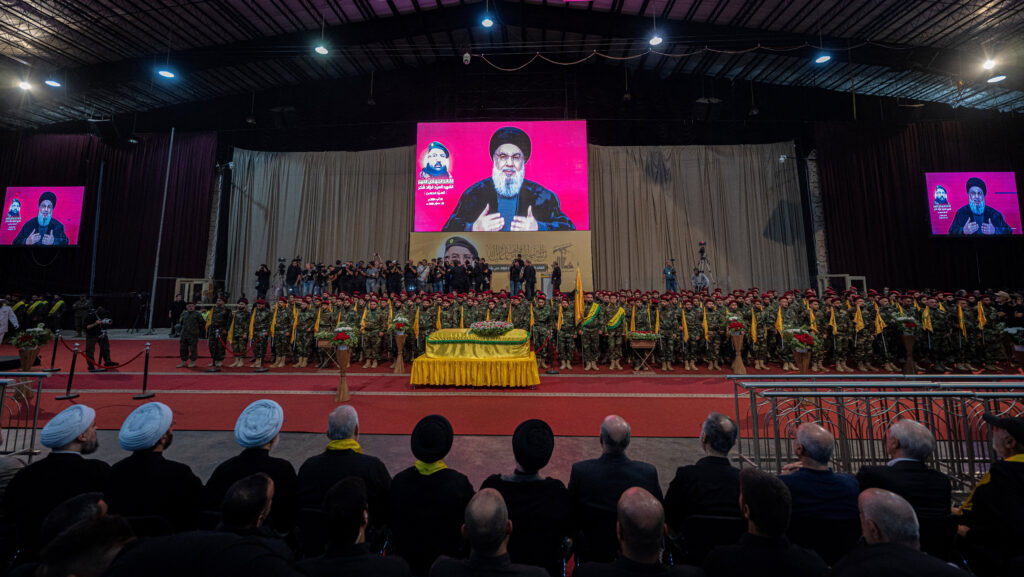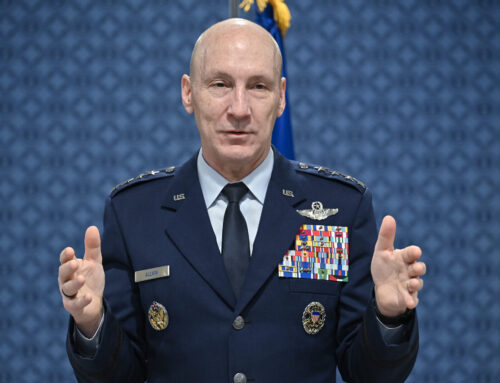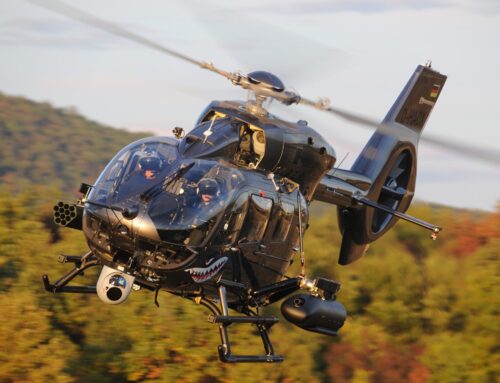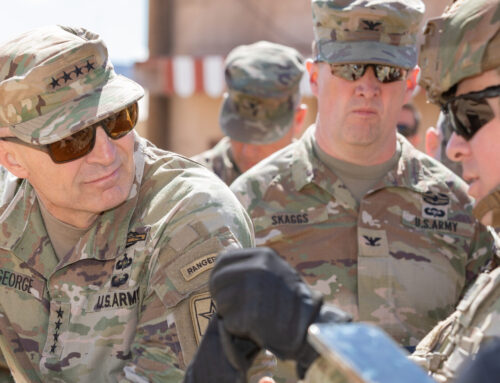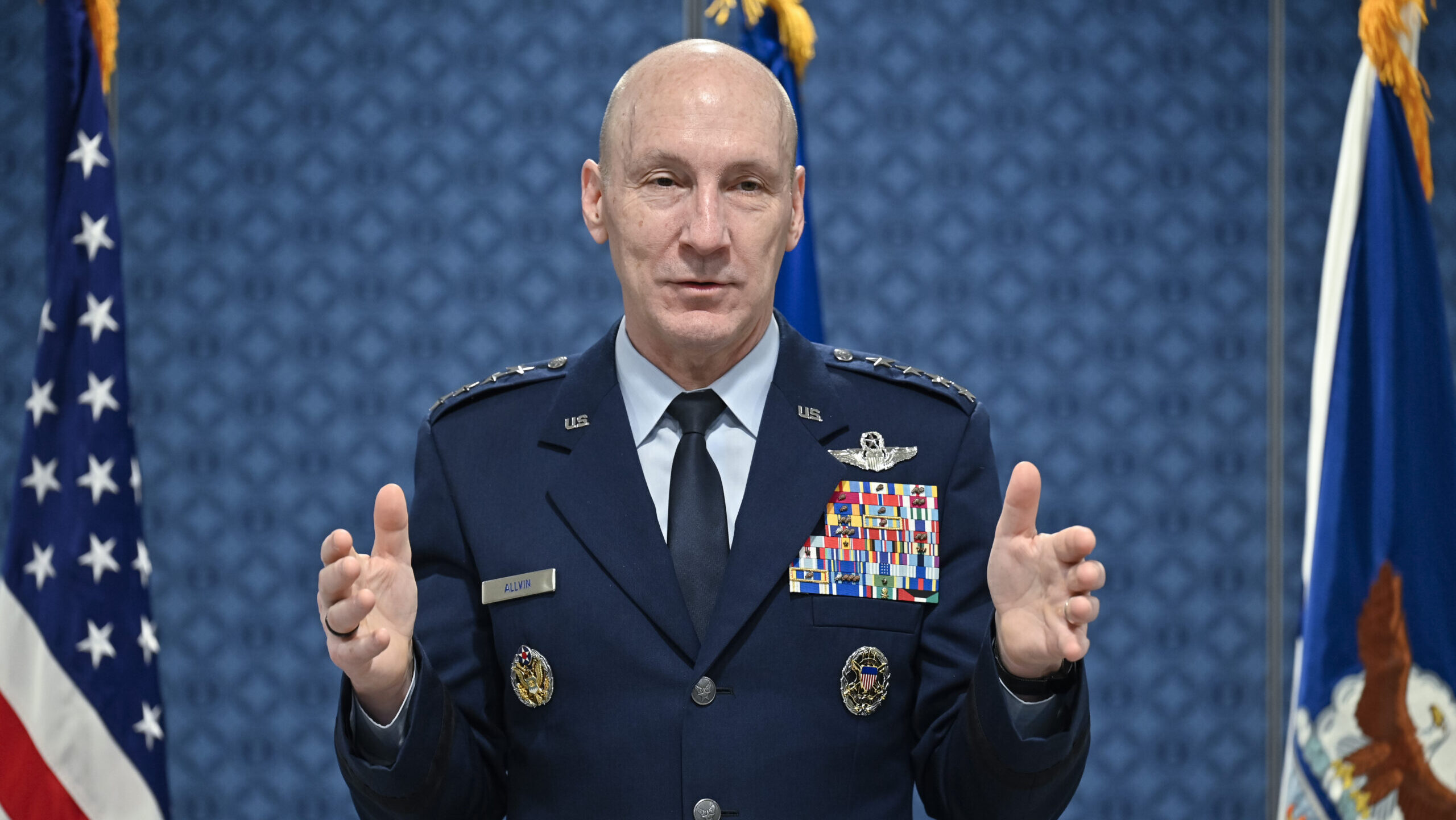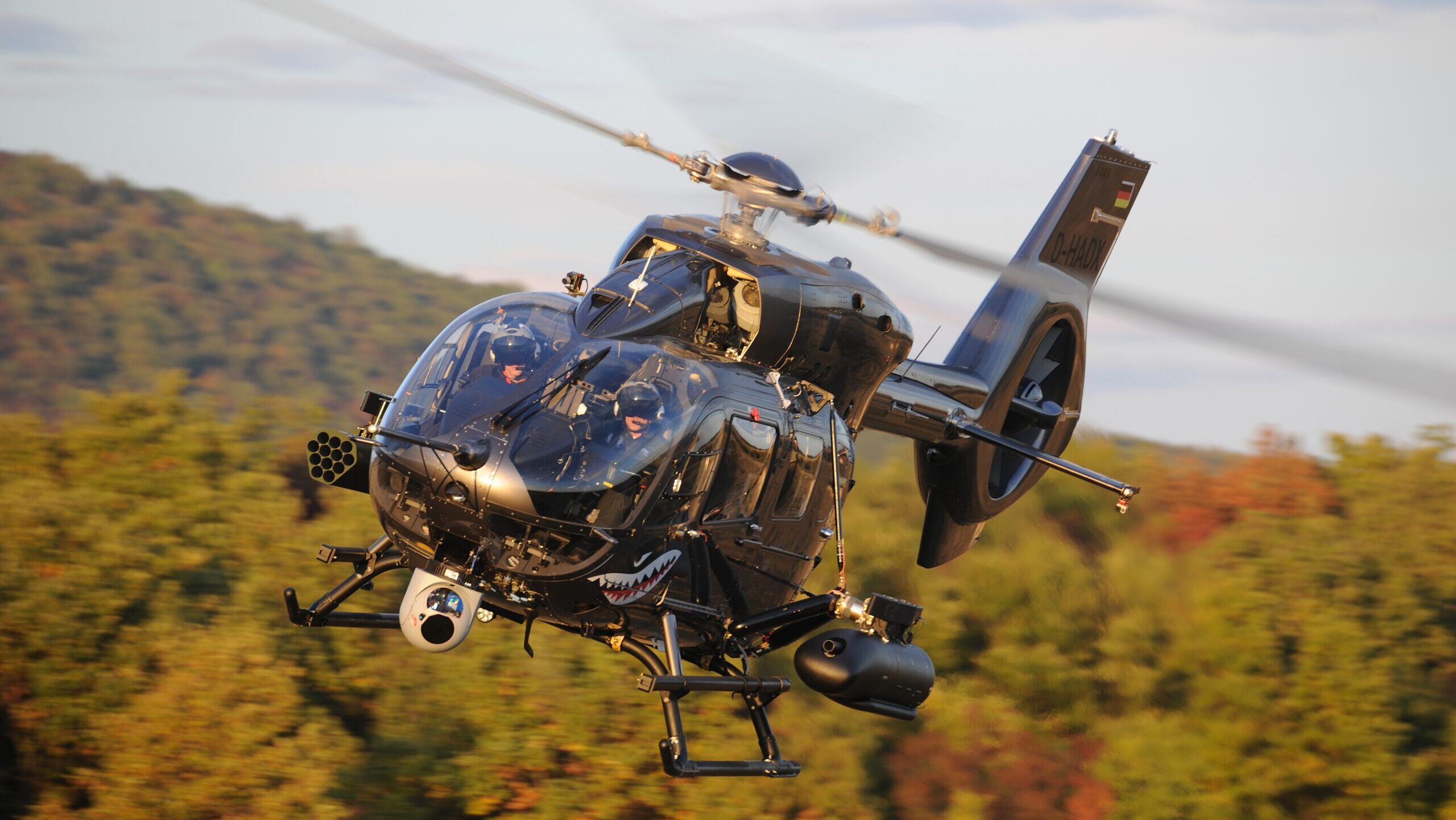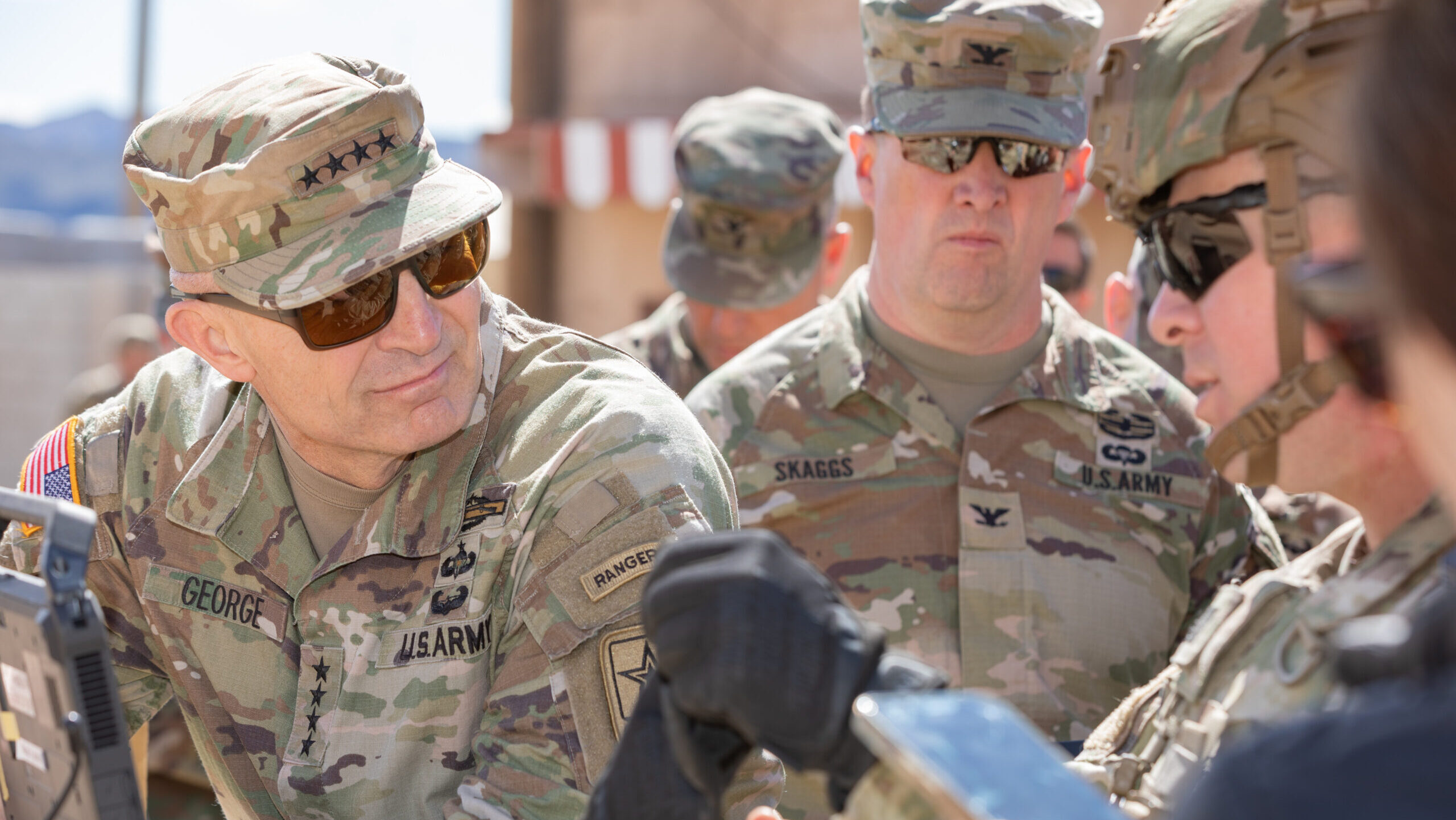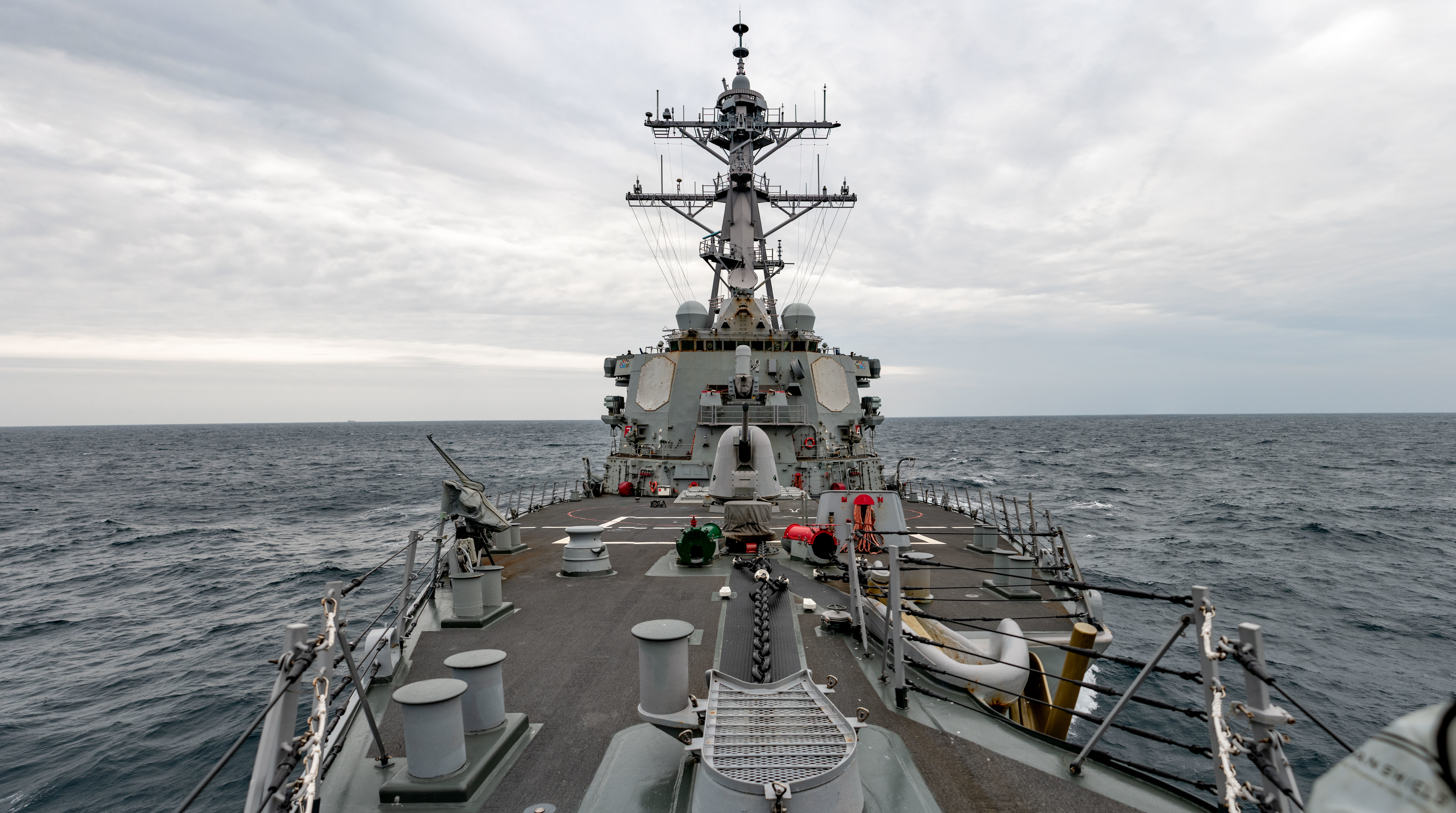A televised speech by Hezbollah chief Hassan Nasrallah is transmitted on large screens as fighters and mourners attend the funeral ceremony of slain top commander Fuad Shukr in Beirut’s southern suburbs on August 1, 2024. (KHALED DESOUKI/AFP via Getty Images)
BEIRUT and WASHINGTON — Hezbollah Secretary General Hassan Nasrallah promised today a “new phase” of conflict with Israel surpassing the Gaza “support front,” potentially signaling a plan to expand the conflict along Lebanon’s southern border.
Nasrallah’s comments were made in his first speech after Israel on Tuesday launched an air strike on a southern suburb of Beirut, killing Hezbollah senior military commander Fuad Shukr. Hours later Israel is alleged to have assassinated Hamas political chief Ismail Haniyeh, who was visiting Tehran.
“We are before a major battle and we have entered a new phase that surpasses the issue of support fronts,” Nasrallah said today in his speech during Shukr’s funeral. Nasrallah also vowed retaliation for the attacks, and denied that Hezbollah was responsible for attacking the Majdal Shams football pitch on Saturday, killing around 12 children and young adults, which prompted the Israeli strike in Beirut.
”What happened in the southern suburb of Beirut was an act of aggression, and the Israeli side considered it a retaliation. We completely reject this notion,” he said. ”The attack on the southern suburb of Beirut is not in retaliation to the Majdal Shams incident, but rather part of the war and a retaliation against the Lebanese front.”
Directing his speech to Israeli leaders, the Hezbollah chief said, ”You might laugh now, but you’ll end up regretting it when you realize the serious boundaries you’ve crossed.”
Tuesday’s strike on Shukr, who was designated by the US Department of State as “a Specially Designated Global Terrorist” for his purported role in bombing of a US Marine Corps barracks in Beirut that killed scores of Americans in the 1980s, was only the second time Israeli has struck Beirut since the start of the regional conflict following the Oct. 7 attacks in Israel. But the assassination of Haniyeh in Tehran, under the nose of Iran’s leadership, is likely the more destabilizing incident. (The New York Times reported today that he was killed by an explosive device hidden in the guesthouse where he was staying.)
On The Ground On Both Sides Of The Border
In South Lebanon, empty villages, ruined crops and fears of what comes next
In Northern Israel, emptied villages and talk of war in Lebanon
Iran’s supreme leader, Ayatollah Ali Khamenei said in a statement, “We consider it our duty to take vengeance” for Haniyeh’s death, and considered that he was a “dear guest in our house.”
The Iranians believe that Ismail Haniyeh’s assassination on their soil means “their sovereignty, national security, and dignity have all been violated,” Nasrallah said. He added that “the aim of assassinating leaders is to weaken the [anti-Israel resistance] group. However, based on our experience, the resistance has remained strong and unaffected.”
Nasrallah said Israel should “expect our inevitable retaliation,” before concluding that the daily operations on the southern front “will continue in support of Gaza and will not be in response to Shukr’s assassination. However, the resistance must take action in retaliation for this killing.”
A Wider Conflict Could Be ‘Absolutely Devastating’
Through the 10 months of the war in Gaza, Nasrallah has frequently made speeches, but largely avoided calling for greater conflict. Whether today’s address is more bombast than policy will be something to watch closely in the coming days.
Jonathan Lord, a regional expert with the Center for a New American Security, said that while Nasrallah’s denial of Hezbollah’s role in the Majdal Shams attack is “not credible,” Israel and the US do “have to take his warning about entering a new phase of the war somewhat seriously. They’re probably going, to some degree, be following Iran’s lead this weekend in responding to the Haniyeh attack.”
As Lord indicated, there is widespread belief that Iran will launch a retaliatory strike at Israel in the coming days, as the Times reported the leadership has already decided. That may well mirror Iran’s April 13 attack, which saw the widespread launching of drones, cruise missiles and ballistic missiles at Israel, with Hezbollah and other proxies likely to join in. While Israeli defenses, supplemented by US and Jordanian assets, were able to successfully defeat that assault wave this spring, Lord cautioned against assuming Iran will be unsuccessful in breaching those defenses again.
In such an assault, from the north Hezbollah will “likely target things they have yet to attack,” particularly by aiming deeper south into Israel, Lord predicted, especially as Hezbollah has “foreshadowed” strikes on the port of Haifa.
For Lebanese citizens, the question then will be how Israel responds to the coming attack.
“If [the strikes] end up being successful and are devastating or damaging to Israel, if they cause casualties, that is likely going to incur yet another major Israeli response,” Lord warned. “We’re all basically waiting to see how the ball bounces back, and that will determine the next decision. It’s not a place anyone wants to be.”
Southern Lebanon has witnessed clashes between Hezbollah and Israel in the wake of Gaza conflict, but the great fear has been that Hezbollah and Israel’s exchanges of fire evolve into a full-on ground war.
Right now, Lord said he does not see Israel having the capacity for such a conflict, as it is still tied up in Gaza. But if forces begin being pulled out of Gaza and being refitted and rearmed, that could be “a sign that things could potentially get considerably worse” along the border.
“I wouldn’t call it intractable, I’m sure there is some way out of it, but right now all of the near-term incentives are pressing both sides closer to conflict in a way that neither side really wants, but seemingly is still coming,” Lord said. “And it will be absolutely devastating.”


